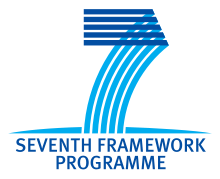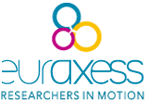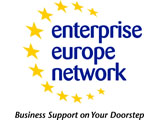Symposium
“Ways of successful science, technology and innovation cooperation between Europe and the USA”
23 -24 April 2012
MID TOWN Meeting and Businesscenter
Ungargasse 64-66, A-1040 Vienna, Austria
Purpose & Scope
The symposium was organised in cooperation between the BILAT-USA project and the Strategic Forum for International S&T Cooperation (SFIC) which is a partnership between the EU Members States and the European Commission.
BILAT-USA is a project funded by the 7th Framework Programme to improve the awareness towards EU-U.S. Science & Technology cooperation through setting up a sustainable, knowledge based, and bi-regional dialogue platform between S&T key players as well as stakeholders from the EU-Member States and Associated countries and from the United States. The project includes various information- and awareness-raising actions, such as establishing a comprehensive web-site and databases dedicated to EU-U.S. STI cooperation, organizing a number of specialized thematic and training workshops and staging high-level events both at the scientific level as well as at the political and policy-making level.
The overall objective of the symposium was to analyse barriers related to framework conditions and legal governance for ST&I cooperation with U.S. partners and to put forward recommendations on how to develop solutions. The symposium brought together SFIC members and observers, representatives of national ministries, research organisations and funding agencies, as well as researchers.
The symposium started in the morning of 23 April 2012 and ended around lunchtime of 24 April 2012.
- The first part of the symposium was dedicated to the results of the BILAT-USA survey carried out among FP7 EU project coordinators and participating U.S. organisations and their views on legal, administrative and funding obstacles.
- In the second part of the symposium “practitioners” and experts presented solutions and showcase reliable administrative and legal arrangements of their activities with U.S. partners.
Agenda
The detailed agenda is available here.
Presentations
The following presentations were given at the event:
|
|
Speaker |
Title |
|
Keynote |
Manfred HORVAT |
|
|
|
Carmen HUBER |
Perspectives on Europe-USA Cooperation in Basic Science and Engineering Research |
|
|
O. Sinan TUMER |
Perspectives on Europe-USA Cooperation in Basic Science and Engineering Research |
|
|
|
|
|
Plenary Session |
Ralf KÖNIG |
BILAT-USA and Link2US - 2 complementary projects enhancing EU-U.S. S&T cooperation |
|
|
Martin BAUMGARTNER |
|
|
|
Gerhard PAAR |
|
|
|
|
|
|
Round Table |
José Miguel BELLO VILLARINO |
Space research collaboration with NASA: The Working Arrangement |
|
|
Rafael DE ANDRÉS MEDINA |
IRDiRC as a multilateral research cooperation framework with US NIH |
|
|
Sophie FERRAND |
The G8 Research Councils Initiative on Multilateral Research Funding |
|
|
|
|
|
Round Table |
Peter ERTL |
|
|
|
Tiina KOTTI |
|
|
|
Per BRODERSEN |
Teaming up. The United States as scientific partner of the Max Planck Society |
|
|
|
|
|
Round Table |
Berit JOHNE |
|
|
|
Sophie FERRAND |
ANR-NSF bilateral cooperation in the framework of ICC and MWN |
|
|
Paulo FERRÃO |
|
|
|
Zygmunt KRASIŃSKI |
Top 500 Innovators |
|
|
Rainer GIRGENRATH |
US-German funding collaboration in Computational Neuroscience |
|
|
|
|
|
Round Table |
Carmen HUBER |
|
|
|
Christina TREEGER |
|
|
|
Antonio LÓPEZ-GAY |
The IPUMSI – IECM Partnership to provide access to census microdata to social science researchers |
|
|
Ulrich SCHÄFFLER |
Bilateral S&T agreements as chance for a successful cooperation |
|
|
|
|
|
Conclusions |
Gonzalo León SERRANO |
Report
The BILAT-USA/ SFIC workshop report is available here:
Links
General background information about the European Strategic Forum for International S&T Cooperation (SFIC) is available here:
- http://www.consilium.europa.eu/policies/era/sfic
- http://ec.europa.eu/research/era/areas/cooperation/international_cooperation_en.htm
- http://ec.europa.eu/research/era/areas/cooperation/sfic_en.html
Information about the SFIC USA Pilot Initiative:
Questions & Contact
1) for BILAT-USA issues:
Elli. B. Tzatzanis-Stepanovic
Project Manager
FFG - Austrian Research Promotion Agency
Divison European and International Programmes
Sensengasse 1
A-1090 Vienna, Austria
E-mail: elli.stepanovic@ffg.at
2) for SFIC issues:
Claudia Bernarding
International Bureau of the
Federal Ministry of Education and Research at the Project Management Agency c/o German Aerospace Center (DLR)
Heinrich-Konen-Str. 1
53227 Bonn, Germany
Email: Claudia.Bernarding@dlr.de





